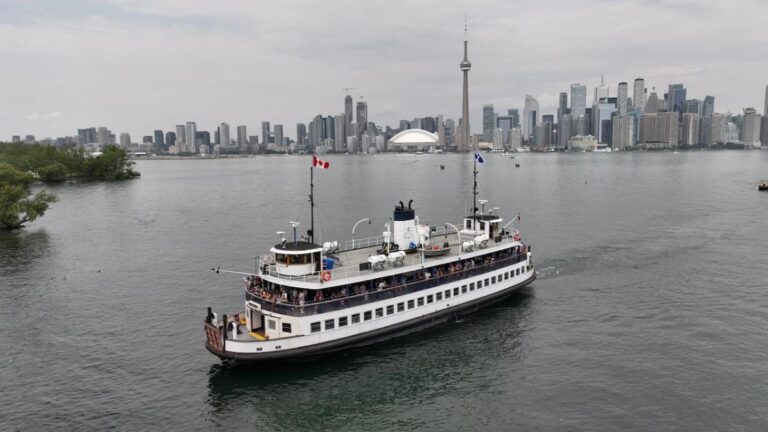City staff will explore the possibility of acquiring “standby vessels” to provide additional service to the Toronto Islands while Toronto waits for the electric ferries it has ordered, council decided Thursday.
At its meeting, the council approved a motion presented by the mayor of Toronto, by a vote of 21 to 1. Olivia Chowwhich orders the director general of parks, forestry and recreation to study the possibility of renting or retaining emergency ferries to alleviate the long queues for service that have developed at the wharves.
Council also approved the purchase of two new electric ferries to serve the Toronto Islands, at a cost of $92 million. The boats will replace the aging ferries that currently serve the island park’s 1.4 million annual visitors. The electric ferries are not expected to be delivered until late 2026 or early 2027.
Chow said the council was “finally, finally” ordering new ferries to the Toronto Islands.
“My motion is basically to say, ‘Hey, why don’t we see if we can lease something between now and the end of 2026 to bring people to the island,'” Chow said.
“Let’s explore it and we will probably have to invest in that area. But I will not regret providing that kind of support, transportation, we can call it that, to get people across the island, instead of making them wait for more than an hour in the hot sun with screaming children. It’s very difficult,” Chow added.
“In the meantime, I urge our park staff to find ways to bring in more food trucks, some entertainment – maybe clowns, whatever, some buskers – to entertain some of these people who are unfortunately waiting in line to get to the island.”
Existing ferries up to 114 years old
Asked how big the rescue ferries would be, Chow said she did not know and would leave that decision to engineers.
Damen Shipyards Galati will build the electric ferries in Romania after the tender award was approved by the council.
Toronto’s ferry fleet consists of four vessels and one heritage vessel with a total capacity of 2,400 passengers. The existing ferries are between 61 and 114 years old, exceeding the industry average lifespan. The new vessels are scheduled for delivery in late 2026 and early 2027.
The two new vessels are expected to increase the city’s ferry capacity by more than 400 passengers per trip for the passenger-vehicle vessel and nearly 1,000 passengers per trip for the passenger vessel, a city staff report to council says.
“The delivery of the new vessels will also improve the passenger experience through contemporary ferry designs and equipment, reduce the expected repair costs of the current fleet and significantly reduce greenhouse gas emissions as the ferry fleet transitions from diesel to electric.”
The city began preparing to purchase replacement boats in 2015, and the city council has changed the design specifications for the vessels several times, leading to increased costs.
The city was originally going to purchase diesel ferries, but opted for the more expensive and environmentally friendly purchase of electric ferries, saving $815,600 in operating costs and $642,800 in fuel costs per year.


